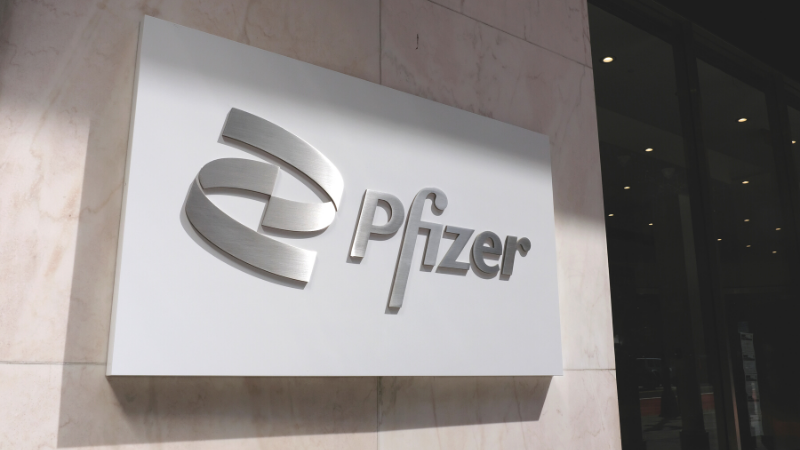Health Care
Pfizer To Let Other Companies Make Generic Versions Of Its COVID-19 Pill

Drugmaker Pfizer Inc. has signed a deal with a UN-backed group to allow other manufacturers to make its experimental COVID-19 pill in a move that could make the treatment available to more than half of the world’s population.
In a statement issued this week [November 16], Pfizer said it would grant a license for the antiviral pill to the Geneva-based Medicines Patent Pool, which would let generic drug companies produce the pill for use in 95 countries, making up about 53 per cent of the world’s population.
The deal excludes some large countries that have suffered devastating coronavirus (COVID-19) outbreaks. For example, while a Brazilian drug company could get a license to make the pill for export to other countries, the medicine could not be made generically for use in Brazil.
Health officials stated that the deal was struck even before Pfizer’s pill had been authorised anywhere as it could help to end the pandemic quicker.
Esteban Burrone, the head of policy at Medicines Patent Pool, said: “It’s quite significant that we will be able to provide access to a drug that appears to be effective and has just been developed, to more than 4bn people.”
He estimated that other drugmakers could start producing the pill within months, but acknowledged that the agreement wouldn’t please everyone.
“We try to strike a very delicate balance between the interests of the (company), the sustainability required by generic producers, and most importantly, the public health needs in lower and middle-income countries,” Burrone added.
Under the terms of the agreement, Pfizer will not receive royalties on sales in low-income countries and will waive royalties on sales in all countries covered by the agreement while COVID-19 remains a public health emergency.
Earlier this month, Pfizer said its pill cut the risk of hospitalisation and death by nearly 90 per cent in people with mild to moderate coronavirus infections. Independent experts recommended halting the company’s study based on its promising results.
Pfizer said it would ask the U.S. Food and Drug Administration and other regulators to authorise the pill as soon as possible.
Since the pandemic began last year, researchers worldwide have raced to develop pills to treat COVID-19 that can be taken at home easily to ease symptoms, speed recovery, and keep people out of hospitals. At the moment, most COVID-19 treatments must be delivered intravenously or by injection.
Britain authorised Merck’s COVID-19 pill earlier this month. The pill is pending approval in other countries. In a similar deal with the Medicines Patent Pool announced in October, Merck agreed to let other drugmakers make its COVID-19 pill, molnupiravir, available in 105 poorer countries.
Doctors Without Borders said it was “disheartened” that the Pfizer deal does not make the drug available to the entire world, noting that the agreement announced also excludes countries including China, Argentina, and Thailand.
Yuanqiong Hu, a senior legal policy adviser at Doctors Without Bordersm said: “The world knows by now that access to COVID-19 medical tools needs to be guaranteed for everyone, everywhere, if we really want to control this pandemic.”
The decisions by Pfizer and Merck to share their COVID-19 drug patents stand in stark contrast to the refusal of Pfizer and other vaccine-makers to release their vaccine recipes for wider production.
A hub set up by the World Health Organization (WHO) in South Africa intended to share messenger RNA vaccine recipes and technologies has not enticed a single pharmaceutical to join.
Fewer than 1 per cent of Pfizer’s COVID-19 shots have gone to poorer countries, the Associated Press (AP) news reported.
-

 Banking & Finance2 months ago
Banking & Finance2 months agoOman Oil Marketing Company Concludes Its Annual Health, Safety, Environment, and Quality Week, Reaffirming People and Safety as a Top Priority
-

 News2 months ago
News2 months agoJamal Ahmed Al Harthy Honoured as ‘Pioneer in Youth Empowerment through Education and Sport’ at CSR Summit & Awards 2025
-

 OER Magazines2 months ago
OER Magazines2 months agoOER, December 2025
-

 News2 months ago
News2 months agoAI Security Conference 2025 Hosted by Securado Highlights the Changing Cybersecurity Landscape
-

 Insurance1 month ago
Insurance1 month agoSupporting Community Wellness: Liva Insurance Sponsors Muscat Marathon 2026 with Free Health Checkups
-

 Interviews1 month ago
Interviews1 month agoEXCLUSIVE INTERVIEW: TLS Rebranding Marks Strategic Leap Toward Innovation, Sustainability & Growth
-

 Insurance3 weeks ago
Insurance3 weeks agoLiva Insurance Supports Community Wellness Through “Experience Oman – Muscat Marathon 2026”
-

 Banking & Finance3 weeks ago
Banking & Finance3 weeks agoA New Platform for SME Growth: Oman Arab Bank Unveils Tumouhi






























